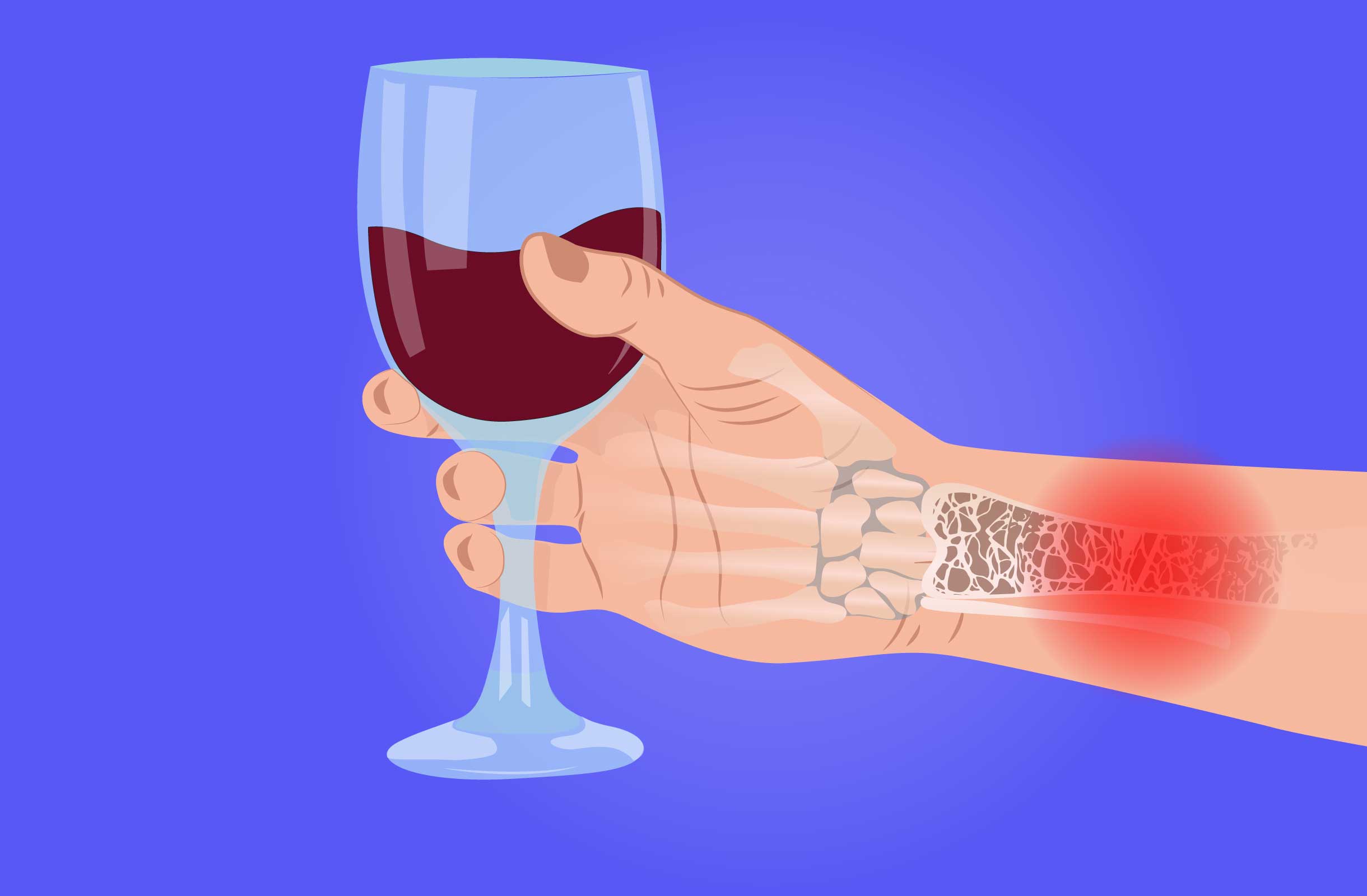
11 Unexpected Health Benefits of Moderate Alcohol Consumption
Getting drunk every weekend isn’t exactly a ticket to good health, but sipping alcohol in moderation might not be the villain it’s often made out to be. In fact, for some people, having a drink now and then could come with a few unexpected health perks. Of course, how your body reacts to alcohol depends a lot on your individual biology—what works for one person might not for another.
According to the Dietary Guidelines for Americans, moderate drinking is defined as up to one drink per day for women and up to two for men, and that’s not an average across the week—it’s per day. So no, seven beers on Saturday doesn’t count as moderation.
We’ve all heard plenty about how alcohol can wreck your health, but let’s flip the script and explore the lesser-known upsides. Here are eleven science-backed reasons why responsible drinking might be more than just a social habit—it might be a health enhancer too.
1. A Longer Life Could Be in the Cards
It’s no secret that excessive alcohol use can shave years off your life, causing everything from liver damage to cancer. But research suggests that those who drink small amounts regularly—not all at once—might actually outlive non-drinkers.
A 2014 study from three Spanish universities followed participants for 12 years and found that people who had low, steady wine intake throughout the week, without bingeing, showed a 25% lower risk of mortality. Another study from 2017 tracked over 333,000 people and discovered a 21% reduction in the risk of dying early for moderate drinkers compared to lifelong abstainers. And a 2018 report published in PLOS Medicine echoed these findings, indicating that moderate drinkers may live longer than teetotalers.

2. It May Support Heart Health When Done Right
Yes, drinking too much can lead to heart complications—but sipping modestly might do the opposite. Several long-term studies suggest that a few drinks each week could help prevent heart failure and lower the risk of coronary artery disease.
In 2006, researchers discovered that light to moderate alcohol use was linked with a reduced risk of ischemic stroke and vascular issues, particularly in middle-aged adults. Going back to 1999, another group found that moderate drinkers had fewer cases of coronary artery disease compared to both heavy drinkers and those who avoided alcohol entirely.
One of the most telling studies, involving over 87,000 female nurses, observed that moderate drinkers among them had significantly lower risks of heart disease and stroke. The reason? Alcohol may improve blood flow and help prevent clotting—key factors in cardiovascular protection.
3. Lower Risk of Type 2 Diabetes
With type 2 diabetes cases projected to rise by nearly 37% globally by 2030, any preventive tool is worth noting. Interestingly, moderate alcohol use might be one of them.
A 2005 review published in Diabetes Care pooled data from 15 studies and found a significant drop in diabetes risk among those who drank in moderation compared to both heavy drinkers and non-drinkers.
Cardiologist Dr. Robert Segal noted that while heavy drinkers see no protective benefit, moderate drinkers may have up to a 30% reduced risk. This could be due to improved insulin sensitivity and healthier lifestyle choices often seen in moderate drinkers.

4. A Boost for Male Fertility
An Italian fertility clinic conducted a 2018 study that found men who drank four to seven alcoholic drinks per week had better fertility markers than those who drank more—or less.
Published in the journal Andrology, the study looked at 323 male participants and found that moderate drinkers showed higher testosterone levels and better sperm quality. Though the sample size was small, it suggests moderation might strike a hormonal balance that's beneficial when it comes to reproduction.
5. Cold Season Shield: Alcohol’s Unexpected Role
Too much alcohol can definitely make a cold worse, but moderate wine consumption might actually help you avoid catching one in the first place.
Back in 1993, Carnegie Mellon University researchers found that non-smokers who drank moderately had fewer colds. Nearly a decade later, Spanish researchers reported a 60% drop in cold incidence among people who drank 8 to 14 glasses of wine per week—particularly red wine. They credited the polyphenol antioxidants, which support immune function.
Dr. Segal explained that compounds like resveratrol, found in red wine, help prime the body’s immune defense by reducing oxidative stress. But smokers? They’re still likely to get sick more often, regardless of how much or how little they drink.

6. It Might Help Guard Against Dementia
A massive review of studies going all the way back to 1977, involving over 365,000 participants, showed that moderate alcohol drinkers were 23% less likely to develop Alzheimer’s disease or other forms of dementia compared to abstainers.
Researchers believe that small, controlled doses of alcohol stress the brain’s neurons just enough to build their resilience—like a kind of cellular training for mental endurance.
Dr. Edward J. Neafsey, one of the lead researchers, noted that moderate alcohol intake may strengthen brain cells to better withstand age-related degeneration. Still, he emphasized that no one should start drinking just for this purpose—it’s only potentially helpful if drinking is already part of your routine.
7. Gallstones Might Be Less Likely
A 2009 study from the University of East Anglia revealed that people who drank two drinks daily had a 33% lower risk of gallstones compared to those who didn’t drink at all. That’s a striking number for something as painful as gallstones.
Researchers believe alcohol stimulates bile production, which helps dissolve cholesterol—the substance that forms most gallstones. A 2017 follow-up study from Qingdao University in China reinforced this, suggesting alcohol plays a protective role against gallstone disease when consumed wisely.

8. Bone Health Boost for Postmenopausal Women
Bone loss is a natural part of aging, but it hits postmenopausal women particularly hard due to hormonal changes. Surprisingly, moderate alcohol consumption may slow down that bone density loss.
A 2012 study published in the Journal of The North American Menopause Society found that women who drank moderately after menopause retained more bone mass compared to non-drinkers. This suggests alcohol might play a role in protecting against osteoporosis, though again, only when consumed in small amounts.
9. Less Risk of Rheumatoid Arthritis
In 2010, a study published in the journal Rheumatology discovered that people who abstained from alcohol were almost four times more likely to develop rheumatoid arthritis than those who had at least one drink three times per week.
The likely reason? Alcohol’s anti-inflammatory properties may help soothe the immune response that causes painful joint swelling. Interestingly, the same study showed that people who already had arthritis and drank in moderation experienced milder symptoms. However, for heavy drinkers with the condition, things worsened—especially when combined with medication.
10. Wine and Beer Have Some Nutritional Value
While it’s definitely no replacement for a multivitamin, moderate drinking can contribute a few nutrients to your diet. Beer, for instance, contains small amounts of protein, B vitamins, and minerals like magnesium and selenium.
Red wine offers a bit of iron and, more importantly, polyphenol antioxidants like resveratrol, which have anti-aging and anti-inflammatory effects.
Still, that doesn’t mean you should drink for the nutrients. These benefits are minor but can complement an already balanced diet when drinking is kept within healthy limits.

11. It Could Offer Some Mental Health Perks
Not only can moderate alcohol use provide physical health benefits, but it may also positively impact your mental well-being—if managed carefully.
One study noted that low-to-moderate drinkers reported more frequent feelings of happiness and relaxation. They also scored lower on measures of tension, depression, and self-consciousness compared to both heavy drinkers and those who never drank at all.
However, it’s crucial to point out that this balance is delicate. Relying on alcohol to manage anxiety or depression is a dangerous path, and those struggling with mood issues should speak with a professional before incorporating alcohol into their routine. The key lies in enjoying alcohol occasionally—not depending on it.
























